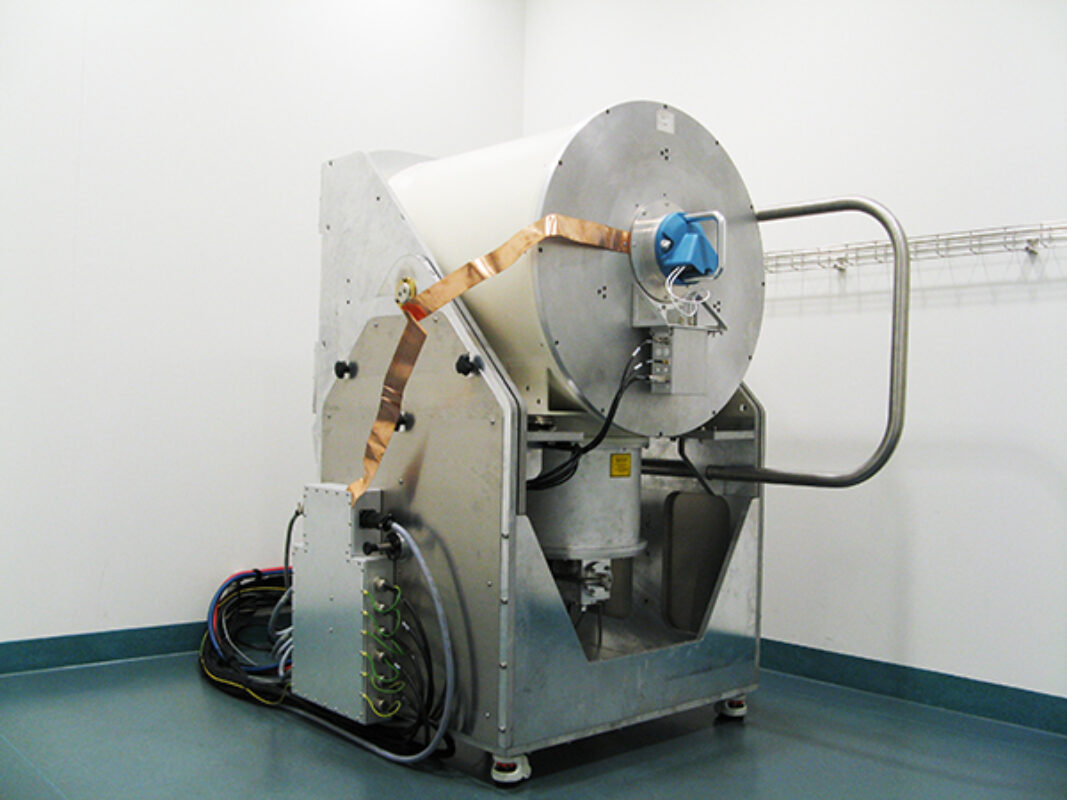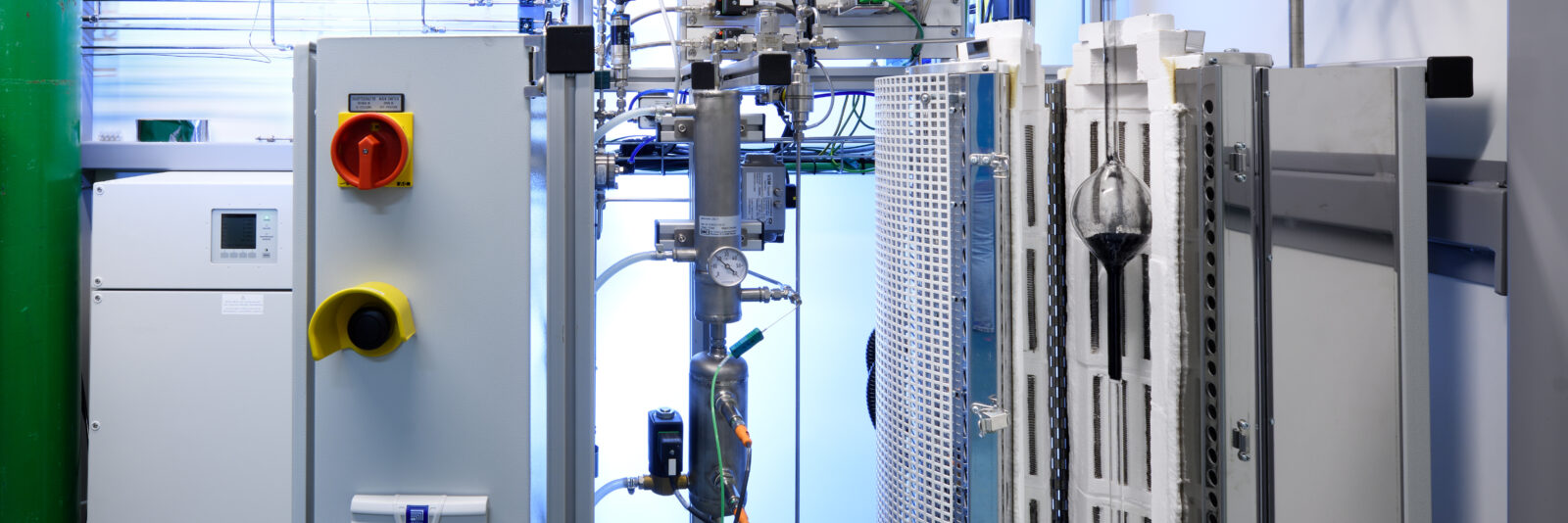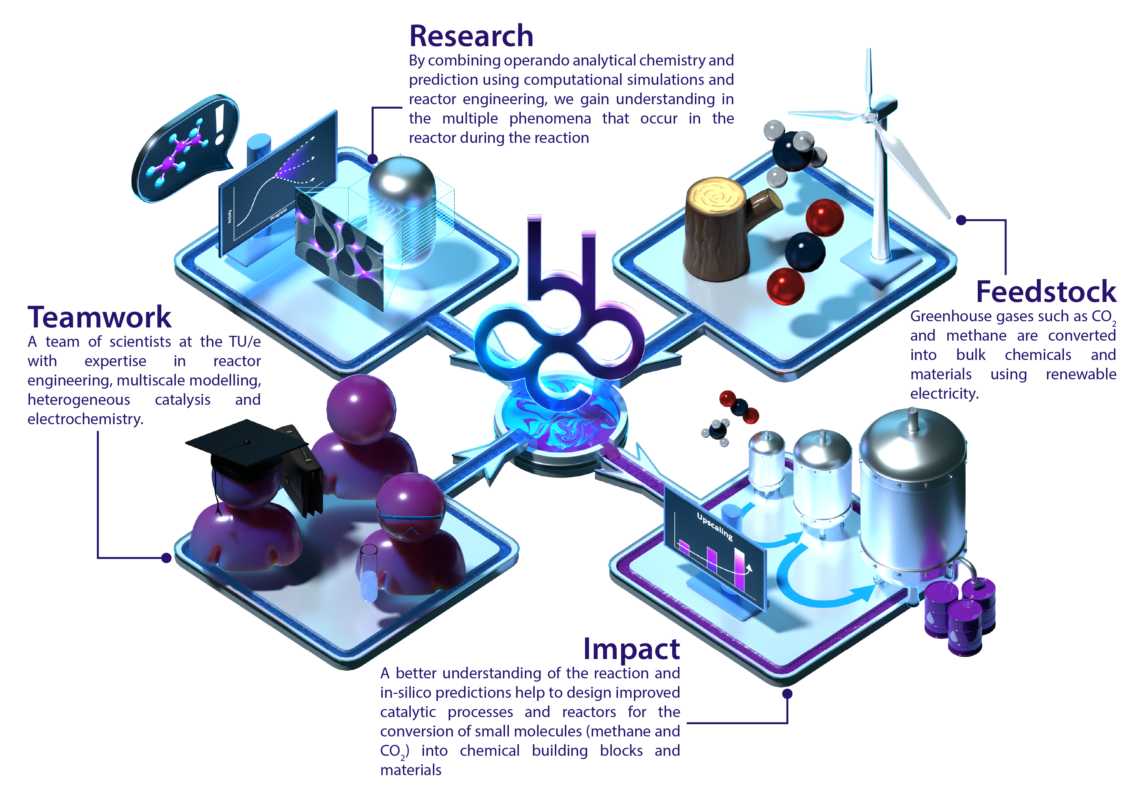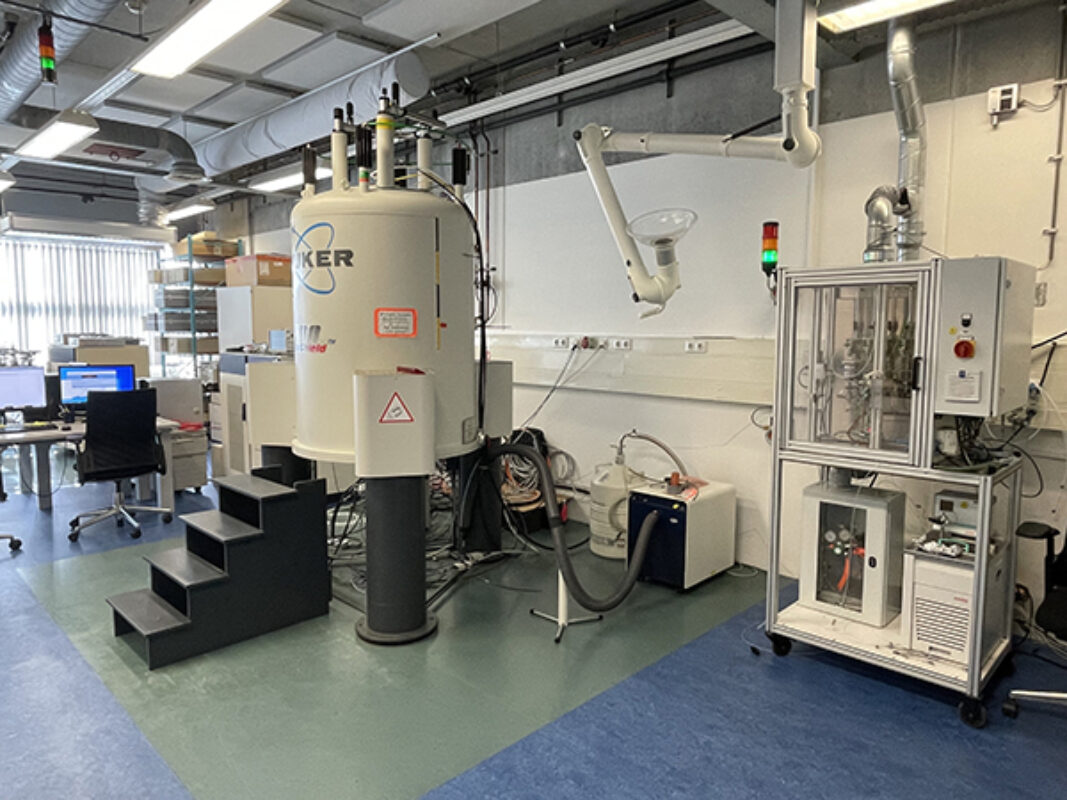To create impact, the new chemical concepts developed by our researchers must be brought to a larger scale. The technical University of Eindhoven hub brings on boards its expertise in chemical engineering sciences, fundamental understanding in catalysis and reactor design, allowing to scale up new catalytic technologies to an industrial level.
ARC CBBC Eindhoven: a recognized center of expertise in chemical engineering
To bridge the gap between fundamental research and production, it is necessary to understand the chemistry taking place in a reactor, from the molecular level to the interactions between the different phases in the reactor vessel (liquid, solid and gas). This is essential to design reactors that can work at the lowest energy cost to increase their sustainable impact. Our researchers at the technical university of Eindhoven are experts in catalysis and chemical engineering, and focus on the development of new process technologies to perform challenging chemical transformations, for instance, the conversion of CO2 and methane into value-added products. Using state-of-the-art in-situ and operando spectroscopic tools, they study the structure-activity relationships of the catalytic system inside the reactor, to gain understanding on the system catalyst-reactor and further optimize it. Their expertise covers molecular heterogeneous catalysis, reactor design, computational modelling, process intensification and separation technology.
The Eindhoven technical university hub focuses on three research lines:
- Small molecule activation: Environmentally harmful gases such as CO2 and methane are converted to value-added products by using innovative catalytic technologies.
- Electrochemistry: the direct use of the renewable electricity to enable chemical bond formation, allowing to operate the reaction at mild temperatures, lower pressures and with less waste production than conventional approaches.
- Multiscale modelling: computational chemistry is used to anticipate what happens during the reaction inside multiphase reactors used in chemical industry for large-scale production, allowing for the optimization of the reactor system.
A word from Hans Kuipers, program director at ARC CBBC Utrecht:
“From the lab to the plant, nothing is impossible”

Infrastructure
The hub infrastructure includes state-of-the-art devices for reactor engineering and reaction monitoring. The hub is equipped for performing, among other analytical techniques, non-invasive monitoring techniques, based on for example Magnetic Resonance Imaging (MRI) and Nuclear Magnetic Resonance (NMR), which are employed for the detailed validation of the computational models developed.
Large equipment available at the ARC CBBC Eindhoven hub:
- Gas flow imaging in trickle bed reactors
- In situ/operando NMR characterization
ARC CBBC researchers are given the opportunity to use this large equipment. For information please contact Marta Costa Figueiredo or Nikolay Kosinov (ARC CBBC assistant professors).

MRI: in situ magnetic resonance imaging scanner for gas flow imaging in trickle bed reactors


